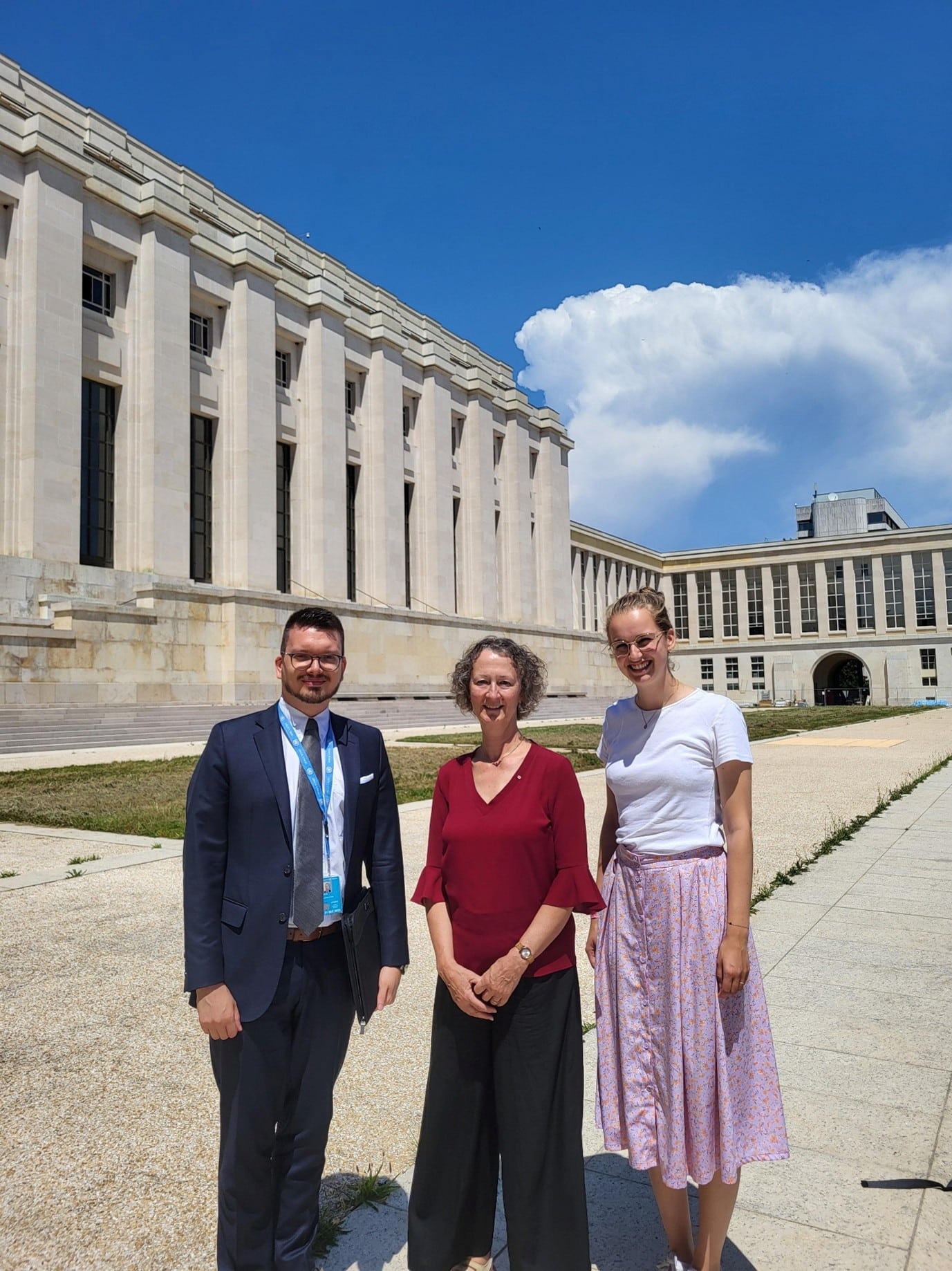![]() The Evangelical Alliance in the UK was the founding member of the WEA in 1846 when the unity movement for evangelicals was planted. Since then, the EAUK has grown to be a robust national body of evangelicals consisting of hundreds of organizations, thousands of churches and tens of thousands of individuals. The Alliance has been representing the evangelical movement in the UK at the forefront of campaigns for Christian unity, religious liberty and social transformation.
The Evangelical Alliance in the UK was the founding member of the WEA in 1846 when the unity movement for evangelicals was planted. Since then, the EAUK has grown to be a robust national body of evangelicals consisting of hundreds of organizations, thousands of churches and tens of thousands of individuals. The Alliance has been representing the evangelical movement in the UK at the forefront of campaigns for Christian unity, religious liberty and social transformation.
As the oldest and one of the strongest Alliances, how has the EAUK navigated through the COVID-19 pandemic? What challenges and opportunities have arisen for the evangelical churches in the UK? What can other national Alliances learn from their experiences?
In the following interview, EAUK’s Director of Communications Jo Frost shares with the WEA about the opportunities that have arisen amid the crisis and how the Alliance has effectively served their members in response to the national lockdown.
Increased Advocacy and Policy-Level Engagements
Because of some of the unique needs specific to the UK, we were able to play a critical role in bridging the government with the churches in both directions.
When the lockdown was announced, the guidance from the government was confusing, slow, and required nuancing. When the government officers say “churches,” they are usually thinking about the Church of England, or Catholic. Some of them did not realize there was a church beyond the Church of England. They did not consider Pentecostals, free evangelical churches, and house churches. These have entirely different ways of holding services and engaging with the congregation. As a result, the regulations the government was imposing on the Anglican churches would make sense to those in the house churches. So we were able to help ministers understand how to translate some of the regulations to make sense to the churches.
The pandemic also gave us increased and more frequent access to talk to the government. There are all-party parliament groups, which are single-issue lobbying groups tackling issues at a cross-party level. We (the EAUK) sit on a lot of those advisory panels and talk to faith ministers and spiritual advisors. Our voice is trusted and valued.
Platform for Sharing Resources and Offering Support
The pandemic opened up opportunities for churches to share best practices and to offer support to the communities.
If you remember, Zoom collapsed on a Sunday morning in May, because every church was using it for their virtual worship services. Since then, there were lots of conversations going around about what streaming platform to use instead, what internet packages are helpful, what worship song licensing they need, etc.
Churches naturally started sharing best practices and ideas, and the Alliance became a strong conduit for them to talk to each other. When school lunches were unavailable, the churches stepped up and said “we can feed the kids.” Unity movements at the local level became really strong — it means that if the local council had to talk to someone from the church, they could simply communicate with one person to mobilize 50 churches to respond to immediate crises.
A Renewed Appreciation for the Alliance
The Alliance has hosted Facebook live conversations, roundtable webinars, panel conversations, and single-person interviews, to find out what the real struggles were and how they were handling them. We also pointed to the best practices and helpful resources and let the rest of our constituency know so they can benefit from what was already available out there.
Sure, the EAUK has been always active and engaging and we had a good foundation of relationships to start with. But only after the pandemic hit did we host Facebook live the way we did, and we had not done webinars to the level we are doing now.
When we phoned and emailed every single member church to pray and talk with them, it was literally the first time they were ever contacted by us. It was uninvited and unsolicited; we didn’t even ask them to call us back! We were simply asking them “how can we help you, how can we pray for you?” It meant a lot to church leaders who were exhausted and overwhelmed in this season, not knowing how to operate the church when everything they used to do was now illegal. We only got to know what they needed because we phoned them.
Because we were very quick in responding to people’s urgent and immediate needs, we now have very good relationships with the churches. The warmth, the engagement, the appreciation, and the inspiration have been overwhelming.
There is now a real, renewed understanding for the need for a community like the Evangelical Alliance. Everyone feels more urgently that churches need to come together, to be a united voice, and to pray together and share ideas. It has been amazing to witness the leaning in of churches and Christians to each other.
Learn more about the Evangelical Alliance
Stay tuned in for Part 2 of the interview! ]]>





Stay Connected